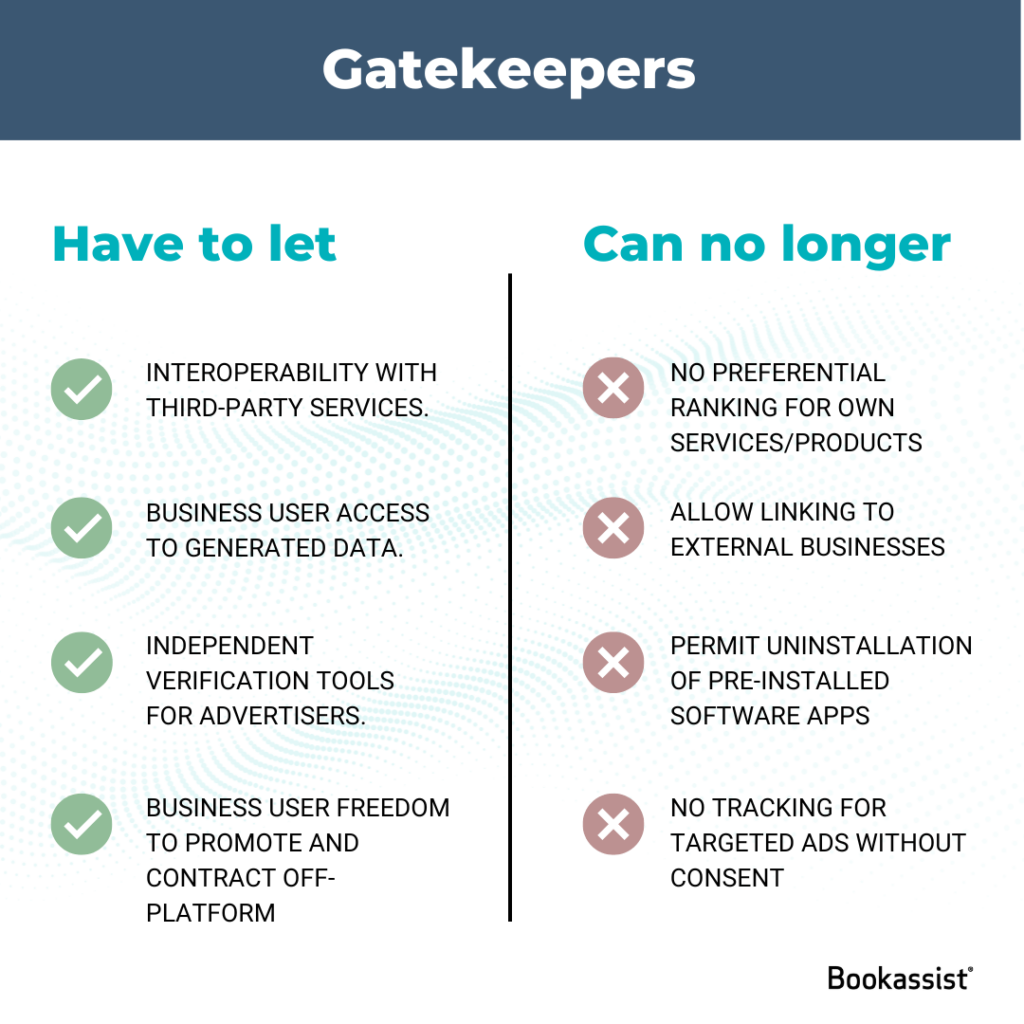Booking.com is now a gatekeeper
In a significant development for the hotel industry and online booking landscape, this week the European Commission has officially designated Booking.com as a gatekeeper under the Digital Markets Act (DMA). This decision is expected to have far-reaching implications for the company’s business practices and therefore the hotel industry and the buying public.
Following this designation, Booking.com has a six-month window to align its operations with the DMA’s comprehensive set of obligations. These obligations are designed to foster greater choice and freedom for consumers, while ensuring fair access for businesses utilizing the platform.
The potential changes for Booking.com could include removing price parity clauses, granting hoteliers access to valuable data generated by their listings, and allowing them to opt out of certain services that may have previously tied them to the platform. These shifts could lead to a more open and competitive online booking market, potentially empowering hotels to offer better deals directly on their own websites.


While the full extent of the impact remains to be seen, this development could mark a turning point in the ongoing efforts to level the playing field in the digital marketplace, particularly for smaller players like independent hotels.
The Commission’s decision to designate Booking.com as a gatekeeper is a clear signal that the DMA is actively shaping the digital landscape, with the potential to reshape the dynamics of online booking and empower both consumers and businesses in the hospitality sector.
More on the Hotel Industry
Consumers are already seeing changes in online information when searching for hotels, but the impact may yet go even wider into large industry players in hospitality. This could create opportunities that hotels could capitalise on to improve their direct business. It remains to be seen what changes Booking.com will implement, but we are already seeing the changes in travel search from Google.
As the dominant search platform, Google has altered some services to better comply with the DMA and continues to make changes.
- Search Results for hotels now show dedicated units that include a group of links to comparison sites from across the web, and query shortcuts at the top of the search page to help users refine their search, including by focusing results just on comparison sites. Google also start testing a dedicated space for comparison sites and direct suppliers to show more detailed individual results including images, star ratings and more.
- In terms of Consent, Google’s European users now see an additional consent banner to ask them whether some services can continue to share data to help personalize content and ads. Users can change their choice at any time.
- Google also enhance its capabilities in Data Portability to make it easier to download the data it holds on you and to facilitate moving data to other providers.
About the Digital Markets Act
The Digital Markets Act, which came into force in May 2023, is about regulating the behaviour and platforms of the large digital companies that we all use on a daily basis. It is specifically targeted at those that have significant market-wide influence through their products, platforms or services.
The purpose of the DMA is to
- open up marketplace competition, in particular to level the playing field for start-ups and SMEs;
- drive increased innovation and growth through fairer competitiveness;
- ensure consumers have greater freedom of choice.
The DMA does not directly apply to every company in the digital space, but it will have a significant impact on everyone who operates digitally. The DMA identifies gatekeepers in the digital market, which will have to comply with the do’s (i.e. obligations) and don’ts (i.e. prohibitions) listed in the DMA in order to ensure fair competition and protection of their users. Initially, in September 2023, the European Commission designated six companies as gatekeepers, namely Alphabet, Amazon, Apple, ByteDance, Meta and Microsoft. These cover platform services such as Operating systems, Search engines, Messaging, Browsers, Video Sharing, Social Networks and Intermediation.


Apart from Google’s changes and the new designation of Booking.com, we have already seen Apple change its approach in the EU to the App Store, to iOS and to Safari, though the company remains in dispute with the European Commission on aspects of compliance.
If you’re not currently working with Bookassist, but would like to hear more about the value we could drive for your business, simply contact us and a member of the team will be in touch soon!
